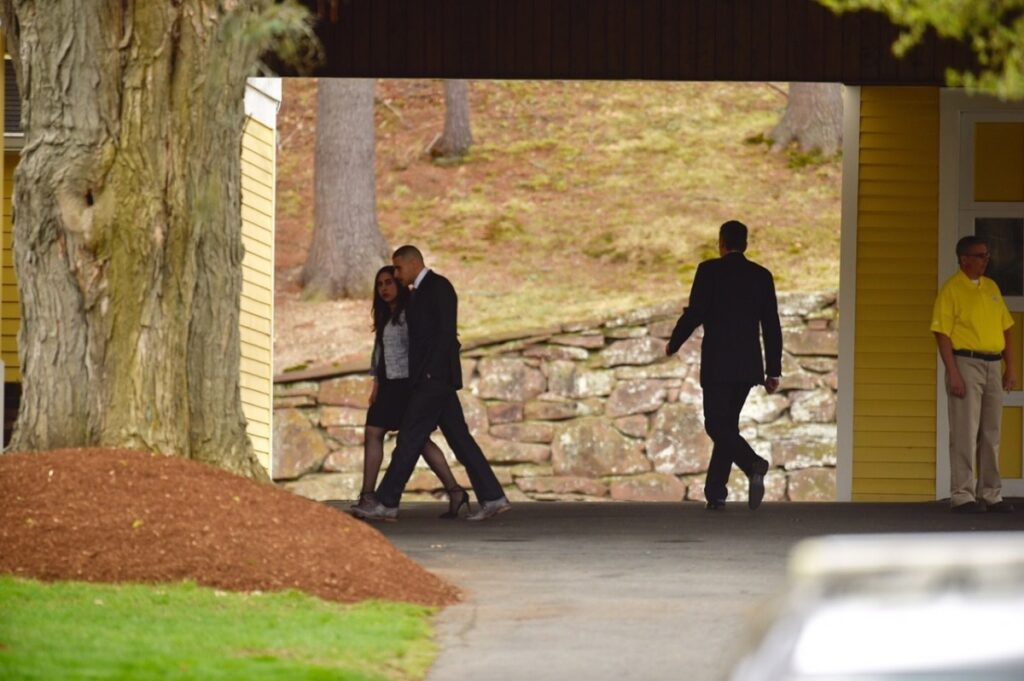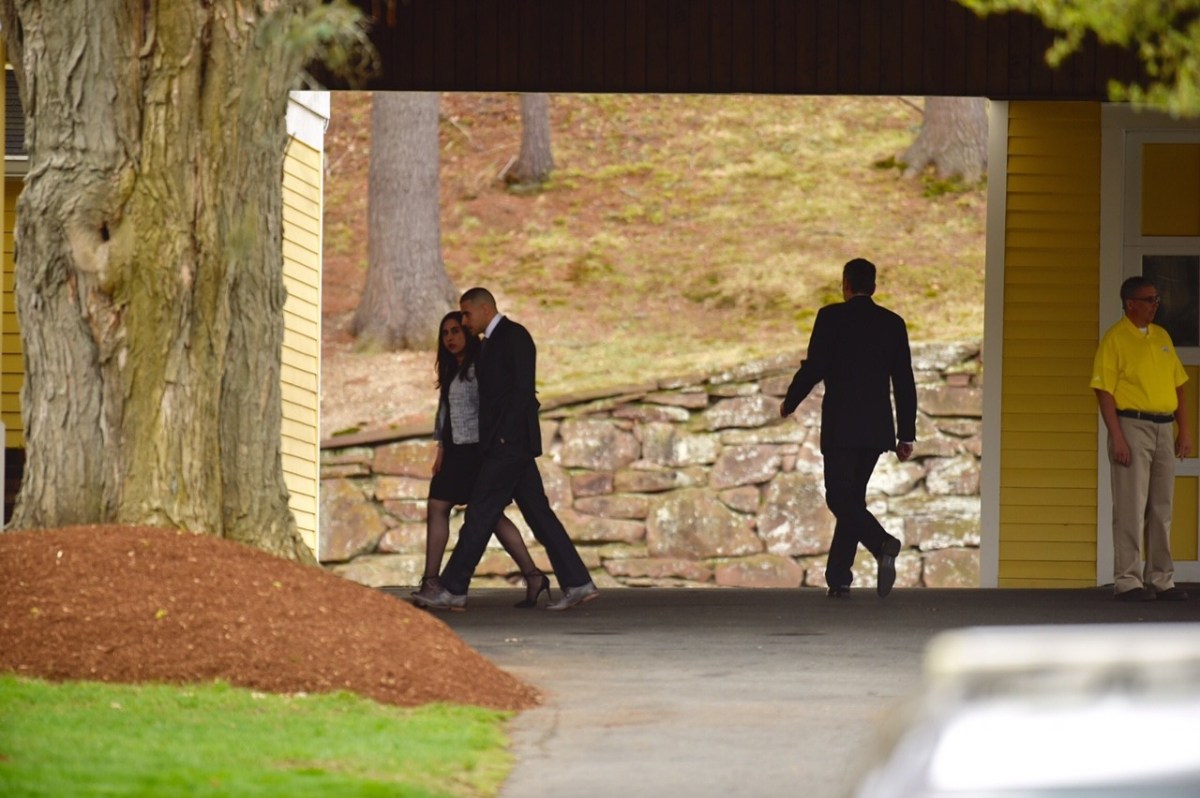
The Obituary of Aaron Hernandez: Examining the Funeral and Legacy
The life and death of Aaron Hernandez remain subjects of intense public scrutiny and debate. From his meteoric rise as a star tight end for the New England Patriots to his conviction for murder and subsequent suicide in prison, Hernandez’s story is a tragic and complex one. This article delves into the obituary of Aaron Hernandez, focusing particularly on his funeral and the legacy he left behind. We aim to provide a comprehensive and objective account, acknowledging the profound impact his actions had on the victims and their families, as well as exploring the circumstances surrounding his untimely demise.
Early Life and Football Career
Born on November 6, 1989, in Bristol, Connecticut, Aaron Josef Hernandez showed exceptional athletic promise from a young age. He excelled in football at Bristol Central High School, earning numerous accolades and attracting the attention of college recruiters nationwide. His talent led him to the University of Florida, where he played under coach Urban Meyer and alongside future NFL stars. Hernandez was a key contributor to the Gators’ success, helping them win the BCS National Championship in 2008.
In 2010, Hernandez was drafted by the New England Patriots in the fourth round of the NFL Draft. Paired with fellow tight end Rob Gronkowski, he quickly became an integral part of the Patriots’ high-powered offense. His on-field performance earned him a lucrative contract extension and widespread recognition as one of the league’s premier players. However, behind the scenes, Hernandez’s life was unraveling.
Legal Troubles and Conviction
In June 2013, the life of Aaron Hernandez took a dark turn when he was implicated in the murder of Odin Lloyd, a semi-professional football player who was dating the sister of Hernandez’s fiancée. Lloyd’s body was found in an industrial park near Hernandez’s home in North Attleborough, Massachusetts. The ensuing investigation led to Hernandez’s arrest and indictment on first-degree murder charges.
The trial captivated the nation, with extensive media coverage detailing the evidence against Hernandez. Prosecutors argued that Hernandez orchestrated Lloyd’s murder due to a perceived slight at a nightclub. The defense countered that Hernandez was innocent and that the prosecution’s case was circumstantial. After a lengthy trial, the jury found Hernandez guilty of first-degree murder in April 2015. He was sentenced to life in prison without the possibility of parole.
The Suicide and Aftermath
On April 19, 2017, just days after being acquitted in a separate double murder case from 2012, Aaron Hernandez was found dead in his prison cell. He had hanged himself with a bed sheet. His suicide shocked the nation and raised questions about his mental state and the circumstances leading up to his death. The timing of his suicide, so soon after the acquittal, added another layer of complexity to his already controversial story.
The Funeral of Aaron Hernandez
The funeral of Aaron Hernandez was a private affair, held on April 24, 2017, in his hometown of Bristol, Connecticut. The service was attended by close family members and friends. Security was tight, and media access was restricted. The obituary released at the time highlighted his early life and football achievements, while also acknowledging the challenges and controversies that marked his later years. The funeral served as a somber reminder of the tragic turn his life had taken.
News reports indicated that the funeral was a small gathering, reflecting the complicated nature of Hernandez’s relationships at the time of his death. Some former teammates and coaches were reportedly absent, perhaps due to the stigma associated with his crimes. The funeral became another chapter in the ongoing saga of Aaron Hernandez, drawing further media attention and public discussion.
Details Surrounding the Service
Specific details about the eulogies and readings at the funeral were largely kept private. However, it’s reasonable to assume that the service focused on remembering the Aaron Hernandez before the murder conviction – the talented athlete, the loving son, and the father. The obituary likely played a significant role in shaping the narrative presented during the funeral.
The Legacy of Aaron Hernandez
The legacy of Aaron Hernandez is undoubtedly complex and tragic. He went from being a celebrated athlete to a convicted murderer, and his story serves as a cautionary tale about the dangers of fame, fortune, and unchecked behavior. His case also highlighted the issue of chronic traumatic encephalopathy (CTE) in football players.
Following his death, Hernandez’s brain was examined by researchers at Boston University, who found evidence of severe CTE, a degenerative brain disease linked to repeated head trauma. While the link between CTE and Hernandez’s behavior remains a subject of debate, the diagnosis added another dimension to the understanding of his actions. Some experts suggest that CTE may have contributed to his impulsivity, aggression, and impaired judgment.
The Impact on Victims and Families
It is crucial to remember the victims and families affected by Aaron Hernandez’s crimes. Odin Lloyd’s murder left a devastating void in the lives of his loved ones. The families of the two men Hernandez was accused of killing in 2012 also continue to suffer from the loss of their loved ones. The obituary and discussions surrounding his funeral should never overshadow the pain and suffering caused by his actions.
The NFL’s Response
The Aaron Hernandez case had a significant impact on the NFL, prompting increased scrutiny of player conduct and mental health. The league implemented stricter policies regarding off-field behavior and provided more resources for player counseling and support. The case also raised awareness of the potential long-term effects of head trauma on football players, leading to changes in the way the game is played and the treatment of concussions.
Conclusion
The obituary of Aaron Hernandez and the details surrounding his funeral offer a glimpse into the life and death of a man whose story is filled with both promise and tragedy. From his rise to stardom in the NFL to his conviction for murder and subsequent suicide, Hernandez’s life was marked by extremes. His legacy is a complex one, encompassing both his athletic achievements and the devastating impact of his crimes. As we reflect on his story, it is essential to remember the victims and families affected by his actions and to learn from the cautionary tale of Aaron Hernandez.
The story of Aaron Hernandez serves as a reminder of the importance of addressing mental health issues, promoting responsible behavior, and holding individuals accountable for their actions. While his athletic talent was undeniable, his choices ultimately led to his downfall and caused immense pain and suffering to others. The obituary, the funeral, and the ongoing discussions surrounding his life and death should serve as a catalyst for positive change and a commitment to preventing similar tragedies in the future.
The obituary of Aaron Hernandez details a life cut short, a potential unfulfilled, and a legacy forever tainted by violence. Even in death, the shadow of his crimes looms large, impacting the memories and perspectives surrounding his life. The funeral, a private and somber affair, offered a final farewell, but it could not erase the pain and sorrow he inflicted. The obituary and the memory of his funeral will forever be intertwined with the narrative of a fallen star.
His story is a complex tapestry woven with threads of athletic prowess, personal demons, and ultimately, irreversible choices. The obituary of Aaron Hernandez, alongside the solemnity of his funeral, serves as a poignant reminder of the human capacity for both greatness and destruction. It’s a story that continues to resonate, prompting reflection on the factors that contributed to his tragic downfall and the enduring consequences of his actions.
[See also: The Impact of CTE on NFL Players]
[See also: High-Profile Athlete Crimes and Their Consequences]
[See also: Understanding Mental Health Issues in Professional Sports]
